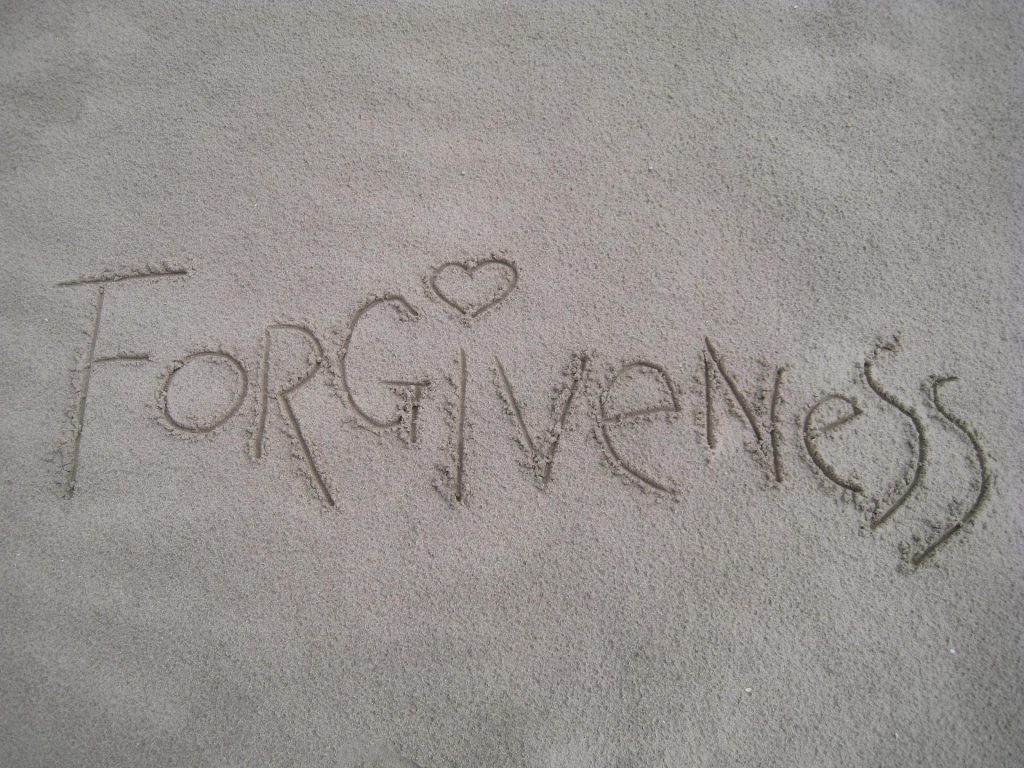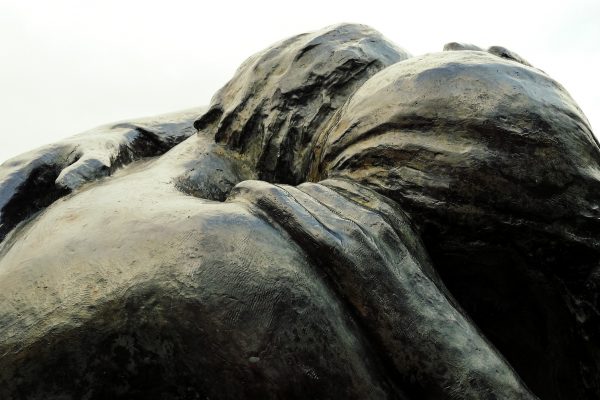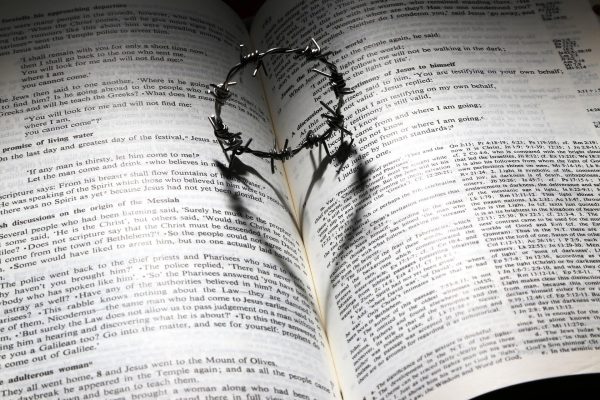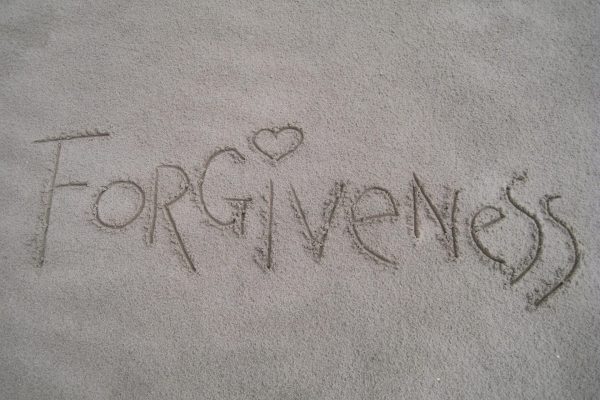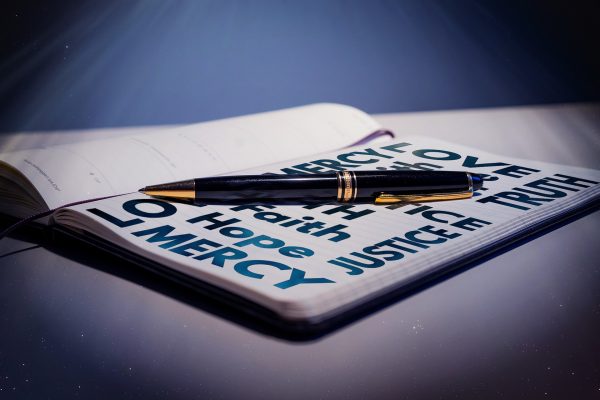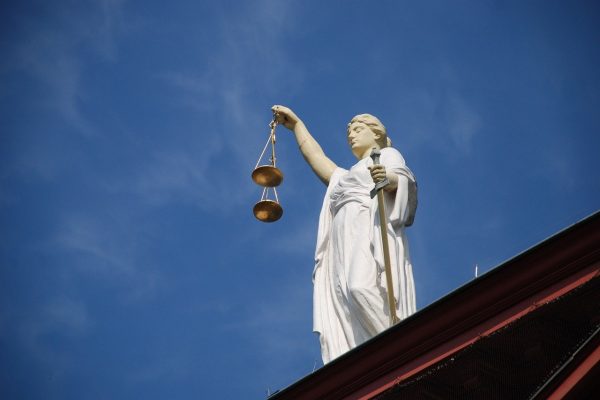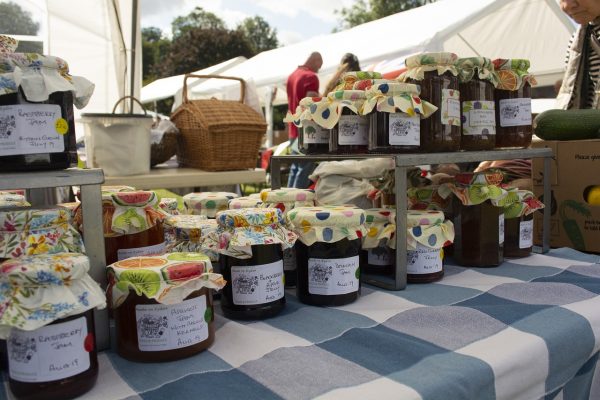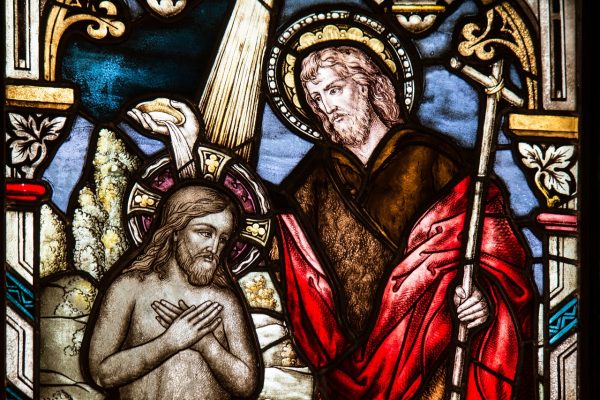Maundy Thursday’s Holy Week reflection by David Shearlock on the subject of forgiveness.
Forgiveness
Many clergy (and I am one of them) possess a book called Cruden’s Concordance of the Bible. It’s an index or dictionary containing nearly every word of Scripture and where it might be found in the Old or New Testaments. So I looked up today’s key words, forgive and forgiveness, and found over a hundred instances of their use.
Then
Saint Luke, in his Gospel, spends a whole chapter (15) recounting our Lord’s teaching on this subject without so much as mentioning it once. Jesus tells three stories there, ostensibly about repentance: they concern a lost sheep, a lost coin and two lost sons. Each story speaks of the sheer joy in heaven which results from the forgiveness of God when a sinner repents.
Think for a moment of some time in your own life when you did something bad to someone and, perhaps later, received their forgiveness. Remember the sheer relief of knowing that your sin had been wiped out and your relationship restored.
Consider Christ’s own teaching in the Lord’s Prayer: ‘forgive us our sins, as we forgive those who sin against us’. What does that say about our own power to forgive the other person and the height at which the bar is set?
Recall Jesus’s own words to the penitent criminal on the adjacent cross (Luke 23. 39-43) and his words to those who were actually putting him to death: ‘Father, forgive them; for they know not what they do.’
Another wonderful illustration is to be found in the martyrdom of Saint Stephen (Acts 7.59-60). ‘As they were stoning Stephen, he prayed, “Lord Jesus, receive my spirit.” And he knelt down and cried with a loud voice, “Lord, do not hold this sin against them.”’
Now
Well, that is something about the biblical background but what about forgiveness in today’s very different times? How, for instance, can we be expected to forgive any of the modern dictators and their appalling deeds? Can we truthfully and meaningfully forgive President Putin for the havoc and murder he is inflicting on the people of Ukraine?
If you ask me that question, my answer has to be ‘No, I can’t’. I can no more forgive him than we can forgive the merchants who plied their dreadful slave trade in earlier centuries; and any more than we can forgive those terrible people and nations who throughout the past centuries have inflicted untold suffering on their fellows. It seems to me that it is not up to us to forgive them yet that doesn’t mean that we can’t be sorry for the atrocious deeds of our forebears and learn from their mistakes and their misdeeds. Ultimately, we can only forgive those personal offences and leave the rest in the hand of a loving and merciful God.
For now, though, may God forgive us for all those times in which we ourselves have erred and strayed like lost sheep.
